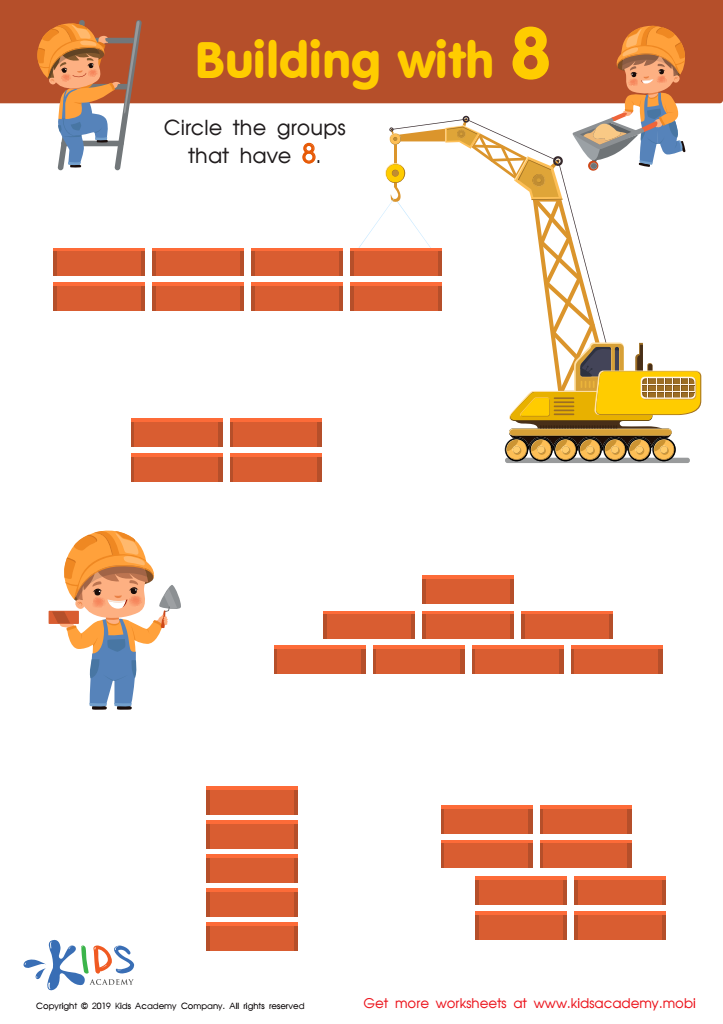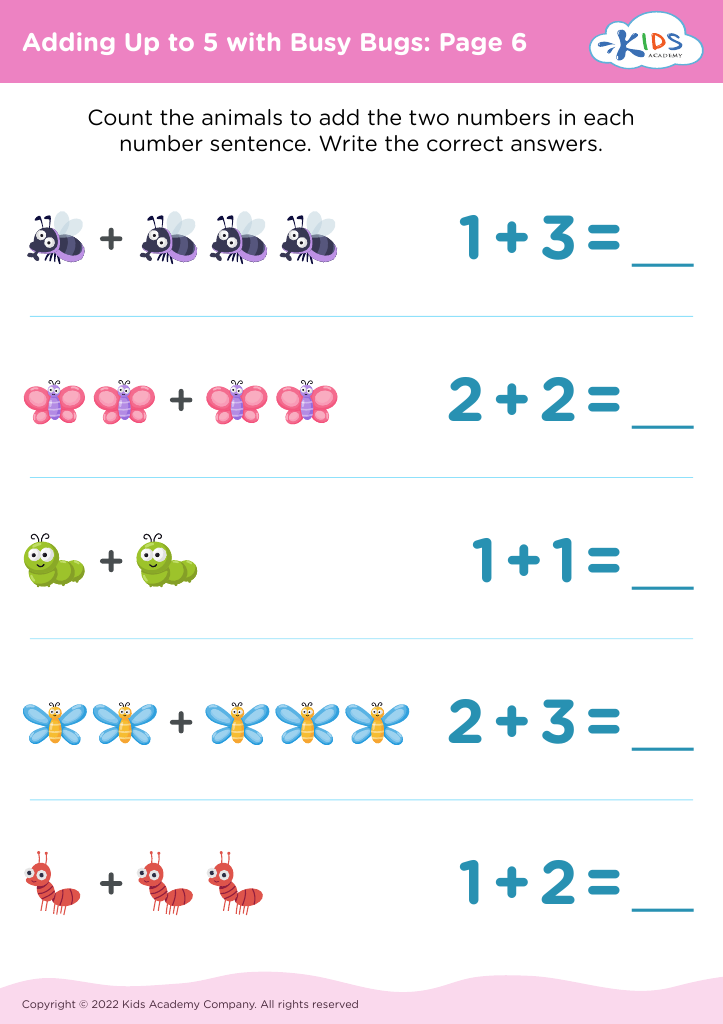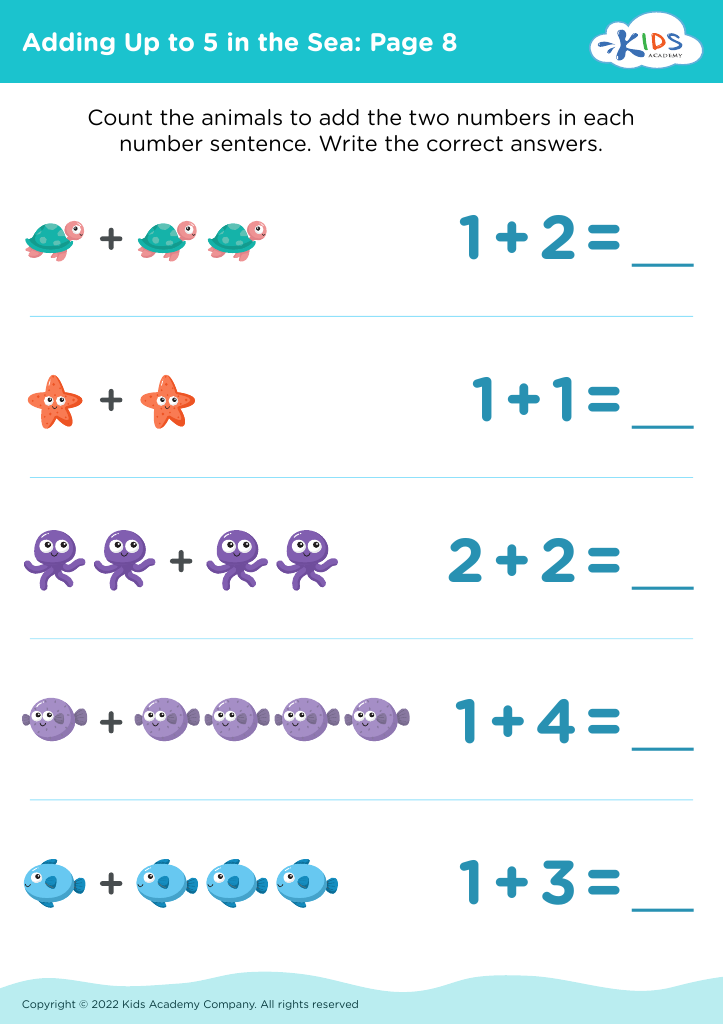Basic arithmetic comprehension Addition Worksheets for Ages 5-7
3 filtered results
-
From - To
Looking to boost your child's math skills? Our "Basic Arithmetic Comprehension: Addition Worksheets for Ages 5-7" are here to help! Designed for young learners, these engaging worksheets make learning addition fun and effective. Each activity focuses on improving number recognition, addition facts, and problem-solving abilities. Perfect for both classroom and homeschool settings, these worksheets provide a solid foundation in basic arithmetic. With colorful illustrations and age-appropriate challenges, your child will find joy in mastering addition. Equip your little one with the skills they need for future math success. Download now and watch their confidence grow!


Building with 8 Worksheet
Basic arithmetic comprehension, especially addition, is crucial for children ages 5-7 as it forms the foundation of their mathematical learning. At this age, children's brains are highly receptive, and introducing them to addition can foster a positive and engaging relationship with math.
Firstly, addition is a fundamental math skill that will be built upon with more complex concepts like subtraction, multiplication, and division. Mastery of basic addition prepares children for future mathematics and problem-solving tasks.
Moreover, learning addition boosts cognitive development, including critical thinking and reasoning skills. These abilities are transferable to other subjects and real-life situations, enhancing overall academic performance and daily problem-solving.
Addition also enhances children’s confidence. As they become proficient with basic arithmetic, they develop a sense of achievement, encouraging a positive attitude toward learning in general.
Furthermore, arithmetic practice promotes fine motor skills and number sense, teaching children to recognize patterns and connections between numbers. Early success in addition can spark enthusiasm and a growth mindset, which is essential for lifelong learning.
Teachers and parents play a significant role in presenting these concepts in a fun and supportive environment. Using tools like counting objects, interactive games, and visual aids can make the addition more engaging and intuitive, making mathematical learning a joyful journey.
 Assign to My Students
Assign to My Students





















